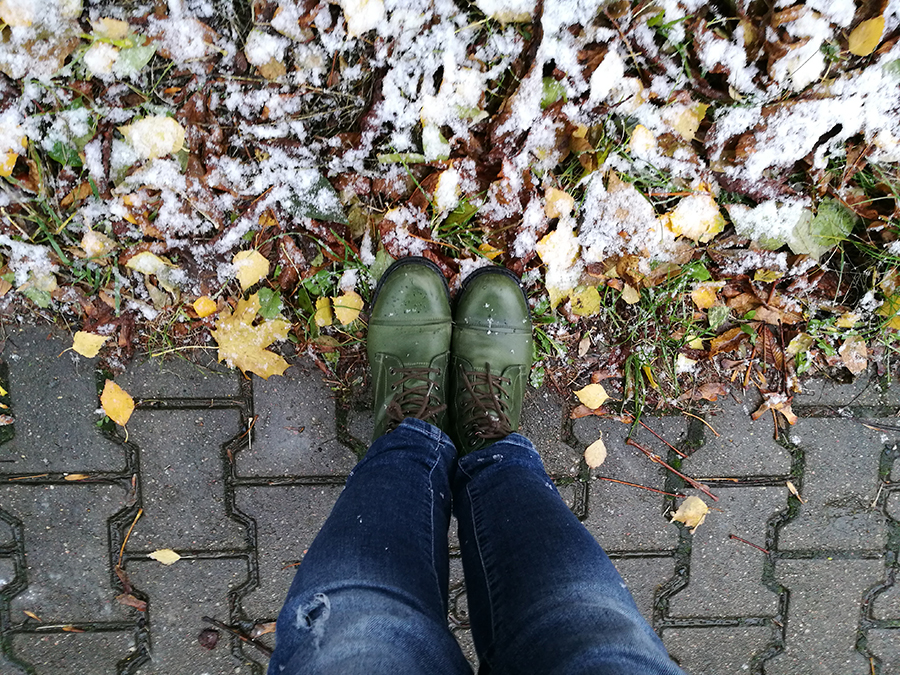
Father Daniel Berrigan, Jesuit priest and activist, influenced generations to oppose war and become “peace criminals.” Even actor Martin Sheen joined Berrigan at a demonstration in New York City in 1986 to protest the Reagan administration’s arms program.
“It was my first arrest for a noble cause,” said Sheen in an interview in 2016, shortly after Berrigan’s death. “It was the happiest day of my life.”
Dan Berrigan has been recognized as one of the most important American Catholics of the 20th Century, alongside Dorothy Day or Thomas Merton. Although not as widely recognized as Day or Merton, Berrigan’s radical pacifism still pushes people of faith to grapple with the unholy peace we make with secular powers of war.
Early life
Dan Berrigan was born on May 9, 1921, in a small mining town in northern Minnesota, the fifth of six brothers. The Berrigan family moved to upstate New York near Syracuse in 1927 to be closer to his father’s Irish family.
Berrigan’s upbringing instilled in him the belief that unjust power can be resisted. His father had terrible outbursts of temper, but his mother’s resistance taught him the power of nonviolence.
The lesson came at school, too. Once, a girl disabled by polio had her legs sticking out into the classroom aisle when a teacher kicked her. He recalls the principal instructing that cruel teacher to apologize to the class.
“They were fallible, those great ones,” Berrigan wrote, reflecting on the incident. “They could be held accountable for their sin.”
Berrigan joined the Jesuits directly after high school in 1939, on the eve of World War II. Berrigan was always first and foremost a writer — before his protests, Berrigan first caught national attention for his poetry. His 1957 collection of poems, Time without Number, won him the prestigious Lamont Poetry Prize.
When he began teaching at a high school in Jersey City in 1946, Berrigan was surprised by his students’ support of the bombing of Hiroshima and Nagasaki. After his ordination in 1952, Berrigan found himself slowly drawn to the cause of peace as the U.S. navigated the Korean War and the start of the Cold War.
Seeking justice and peace
While teaching at LeMoyne College in Syracuse from 1949-1952, Berrigan helped start a Catholic Worker house and organized students to work for housing justice. He deepened his work for justice when he became a chaplain at Cornell University in 1966 and served students being drafted to fight in Vietnam.
Berrigan saw a close link between war and racial justice: Although Black Americans made up only 11 percent of the population, they accounted for 23 percent of the soldiers drafted into combat in Vietnam.
By this time, Dan’s younger brother, Phil, had joined the Josephite order of priests, a community that began to strongly advocate for racial justice. Dan and Phil joined with leaders like Thomas Merton to agitate for peace. Then the two Berrigan brothers became household names when they were arrested for an inflammatory act of protest. They joined seven other activists who broke into a Selective Service office in Catonsville, Maryland on May 17, 1968 to steal draft files and set them on fire. The group became known as the Catonsville Nine.
In an interview in 2009 with America Magazine, Dan Berrigan credited his brother with the idea for that action. He describes Phil visiting him at Cornell after having been arrested with three others for pouring blood on draft files in Baltimore a few months before. Berrigan admired his brother’s courage, but initially balked at Phil’s invitation to join their act of civil disobedience at Catonsville.“I swallowed hard,” Berrigan said in a 2006 interview. But after meditating and praying about the invitation, he knew he had to join.
Their plan in Catonsville was to use napalm to burn draft records. Why napalm? Berrigan was horrified by the burning and suffering it caused in Vietnam. In 1968, he accompanied historian Howard Zinn to Hanoi, North Vietnam to escort out three American prisoners of war. The immense suffering of the Vietnamese at the hands of Americans troubled Berrigan. “I had seen what napalm did to children and the aged in Hanoi,” he said in a 2002 interview with Democracy Now.
“In the military section of the Georgetown University library, a friend found a copy of the Green Beret manual with instructions for making napalm from soap chips and kerosene,” Berrigan told America Magazine.
The Catonsville Nine confiscated 378 files, took the draft records outside, and set them on fire using the homemade napalm. “We make our prayer in the name of that God whose name is peace and decency and unity and love,” Berrigan proclaimed as the group prayed the Lord’s Prayer.
The Catonsville Nine were arrested on the spot.
During their trial in October 1968, Berrigan prepared a statement about the group’s mission that has become one of the most-quoted pieces of his writing: “Our apologies, good friends, for the fracture of good order, the burning of paper instead of children, the angering of the orderlies in the front parlor of the charnel house. We could not, so help us God, do otherwise.”
Swords into plowshares
After the group’s sentencing, Berrigan went into hiding to avoid incarceration. In 1970, he became the first Catholic priest to land on the FBI’s most-wanted list and elicit a nationwide manhunt. He stayed with more than 35 different families in his time underground. Berrigan would appear in church pulpits, write editorials, and preach against war and then disappear again. He even appeared at Cornell to surprise a crowd of more than 15,000 gathered to celebrate him — Berrigan addressed the flabbergasted crowd and then vanished.
The FBI finally apprehended Berrigan in August 1970 on Block Island, off the coast of Rhode Island, where he was staying with friends.
From federal prison in Danbury, Connecticut, Berrigan wrote No Bars to Manhood, in which he told the story of his early life, his work at Cornell, and the trial. He called upon people of good conscience to rouse themselves for the cause of peace — and the cost of becoming a peacemaker:
We cry peace and cry peace, and there is no peace. There is no peace because there are no peacemakers. There are no makers of peace because the making of peace is at least as costly as the making of war — at least as exigent, at least as disruptive, at least as liable to bring disgrace and prison and death in its wake.
After Berrigan was released from prison, he returned to New York City, where he lived for the rest of his life with a Jesuit community on the Upper West Side, and ministered to AIDS patients. Until the end of his life, he resisted war and worked for peace.
In autumn of 1980, the Berrigan brothers formed a community of peace activists known as the Plowshares movement, inspired by a verse from the Bible: “They shall beat their swords into plowshares.” They and six other Plowshares members broke into a nuclear plant in King of Prussia, Pennsylvania, and poured blood over the nuclear weapons stored there. Their legal defense dragged out a decade and drew international attention to the anti-nuclear war movement.
Grotto has told the story of the Plowshares group who followed in their founders’ footsteps by breaking into Kings Bay Naval Base in Georgia. Carmen Trotta was one of the seven members of that protest. Trotta said that reading Dan Berrigan inspired his faith when he was in college. His Long Island family didn’t understand his drive toward pacifism and his life as a Catholic Worker. “My family thought I was crazy,” he said. But reading the Berrigans’ writing encouraged him.
“They’re Catholic, and we’re Catholic,” Trotta said. “So maybe I’m crazy the way they’re crazy.”
Dan Berrigan died on April 30, 2016 in New York, a little more than a week before he would have turned 95. His legacy lives on in the Kairos community of peace activists, and the many “peace criminals” he inspired to join in the work of resistance.
In May of 2021, on what would have been the 100th anniversary of Dan Berrigan’s birth, DePaul University announced a new award in his name that honors a person or organization who “resists injustice, transforms conflict, fosters reconciliation, and seeks justice and peace for all.”
The award was presented to the Kings Bay Plowshares 7.























